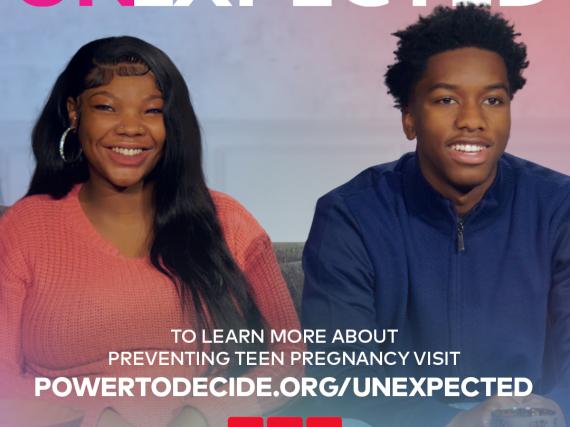Webinar Recap: Five Ways Colleges Are Addressing Unplanned Pregnancy On Their Campuses
Many college campuses are abuzz now with students preparing final papers and studying for exams, but we know that college is about more than getting a degree or certification. Colleges aim to set students up for success and often this means providing instruction beyond academics, to include guidance on life skills. In that vein, Mississippi and Arkansas were the first states to enact legislation to educate college students about preventing unplanned pregnancy. This contributes to student success, while also improving college completion, workforce preparation, and economic development.
Earlier this fall, Power to Decide, hosted a webinar so other states interested in pursuing a similar initiative could learn from the experiences of state like Mississippi and Arkansas. Our speakers included Mississippi State Senator, Sally Doty and Arkansas State University Mid-South Chancellor, Debra West, as well as our colleague Chelsey Connolly, Senior Manager of College Initiatives. Below are five key takeaways from the webinar. (You can still listen to the webinar for free by clicking here and find more resources for colleges by clicking here.)
1. Consider whether legislation is necessary in your state. Senator Doty suggests looking at the governance structure of higher education in a state. A directive from the higher education commission may be enough of an incentive. On the other hand, Sen. Doty found that having the legislation in Mississippi was very helpful for colleges “…it almost gave them permission to talk about this issue and to make decisions and plans about how to address it." Any questions about why colleges are addressing this issue can be answered by pointing to the state legislation that requires it.
2. Make the case for reducing unplanned pregnancy. The laws in Mississippi and Arkansas were prompted by the notoriously high pregnancy rates among 18 and 19 year olds in those states. However, reducing unplanned pregnancy among college students serves broader goals; it can improve college completion, workforce preparation, and economic development. Many in the higher education community, especially those who work directly with students, understand this. Sen. Sally Doty (R-MS), noted “. . . the people that work in [the community college] field see this every day and they have personal connections with students who are derailed by an unplanned pregnancy.” However, you might need to make the case to those who don’t have daily interactions with students.
3. College students are in need of this information. Some may think that college students already have this information, but the high rate of unplanned pregnancies among young adults suggests otherwise. Only half of states mandate sex education in schools and only 18 require that the information presented to students be medically accurate. As my colleague Chelsey succinctly put it, “Again and again we hear [students] are just so grateful someone has finally educated them on these issues. Many people believe that students have already received this information in middle or high schools, but we find time and time again that just isn’t the case.” Also, what someone might learn when they are 16 doesn’t necessary stick or make sense when they are 19.
4. There is no silver bullet, but a multi-faceted strategy helps to ensure a more robust approach. Colleges are carrying out a variety of activities, and each school develops a plan that fits their institution and resources. Arkansas State University (ASU) Mid-South is an example of an institution that has gone “all in.” Chancellor Debra West discussed their three pronged approach that aims to introduce the subject early and reinforce it through the two-year program. This includes incorporating unplanned pregnancy prevention into the logical places such as new student orientation or a college success courses, leveraging other events on campus (such as health fairs), and integrating the issue into peer mentoring programs.
Our guest speakers agreed that there needs to be buy in from staff. There is a role for everyone. Chelsey reinforced this by noting that the most successful college initiatives have collaborative teams, which also builds program sustainability. “Anyone that connects with students has the opportunity to contribute to this effort...every one contributes a little so that it has a big impact".
5. It's not about money, it's about information. Senator Doty noted that of course it does help to have dedicated funding to incentivize colleges to get to work. However, we all understand that state budgets are tight, so you shouldn’t let the need for funding deter your state from a similar initiative. There are free or low-cost resources, including:
- Online lessons from Power to Decide will help students prevent unplanned pregnancy and improve sexual health. Lessons have been evaluated and shown to improve students’ knowledge and behavioral intent.
- Besider.org provides relevant, resonant, and accurate information on sexual health, and has also been evaluated to improve knowledge.
For more information, see our state policy fact sheet on colleges and the Student (Sex) Life section of Bedsider.org.



